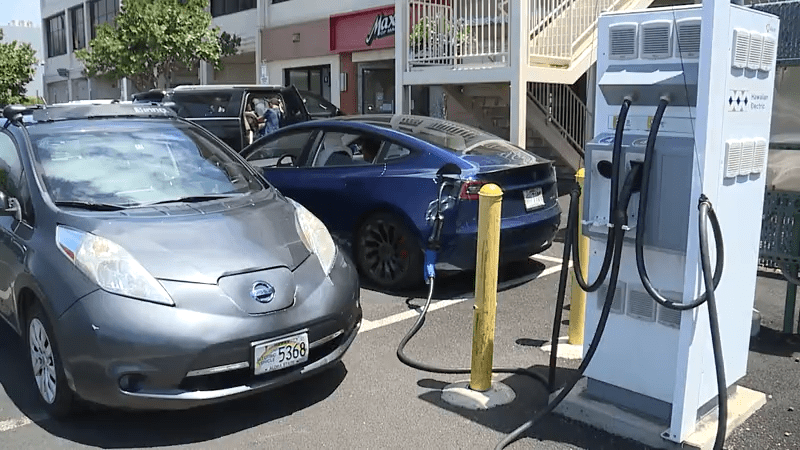HONOLULU (KHON2) — It’s not an issue yet, but could be in the coming years – EV batteries that are no longer functioning. Disposing of them can be dangerous, so state leaders are looking to come up with some solutions now.
If you feel like there are more electric cars on our roads, you’re right.
According to the Hawaii EV Association, there are more than 38,000 registered EVs in the state, up 16% from last year.
“We’ve been seeing such a tremendous growth of electric vehicles on the roadways today, and at some point, we’re going to have to deal with the end of life,” said Lene Ichinotsubo, Department of Health Solid & Hazardous Waste Branch Supervisor.
That’s where the Electric Vehicle Recycling and Reuse Working Group comes in. The group was formed as part of Act 209 this past legislative session to develop best practices on what to do with all these dead EV batteries.
“What we do know is if people can’t figure it out, we certainly don’t want those batteries going into landfills inappropriately, and we don’t want them to be stuck on somebody’s land,” said Mark Glick, Hawaii State Energy Office Chief Energy Officer.
Damaged batteries have the potential to catch fire, which is why Matson suspended shipping EVs to Hawaii. Glick believes that’s just temporary.
“We certainly appreciate Matson’s approach to come up with good safety standards and better understanding of how to safely and effectively do that on their ships,” said Glick. “And we were very pleased to see that Pasha has no plans to alter their policies.”
EV batteries should be good for maybe five to ten years. So in the next few years, Glick estimates the number of EV batteries Hawaii will have to deal with will go from hundreds to tens of thousands.
“So we have to get out in front of this issue to make sure that we’re not building problems, you know, for future generations,” said Glick.
The group is led by the State Energy Office and Department of Health, and will get input from everyone involved, including the auto industry, shipping companies, recyclers and firefighters.
“We’re really optimistic having the brain trust of all of these people to develop that potential solution for sustainable and safe management of end-of-life electric vehicle batteries for Hawaii,” said Ichinotsubo. “We’re very optimistic with this group.”
The working group will meet every other month for the next 18 months and then provide a report to lawmakers in time for the 2027 legislative session. It will then be up to them to decide what, if any, changes will be made.
